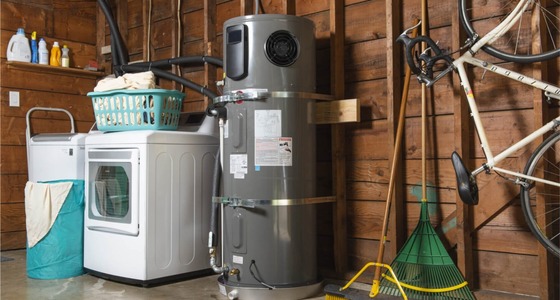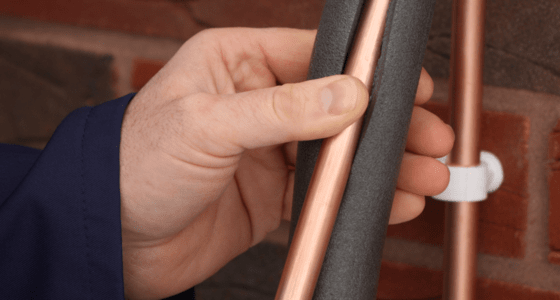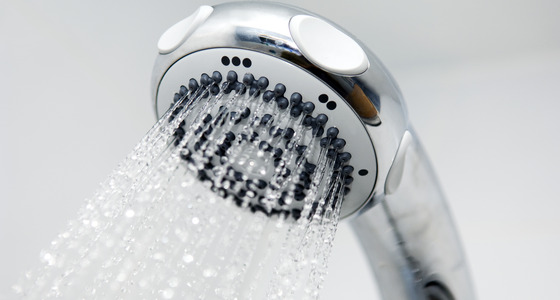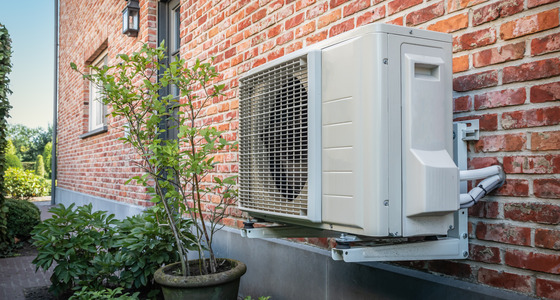Smart ways to save energy and money with water heating
The hotter the shower, the higher the bill. About 34% of our customers rely on electricity to heat their water, including 62% of Vancouver Island customers.
And with hot water heating accounting for an average of 20% of your home’s annual electricity use, it pays to cool off.
On this page:
- Temperature recommendations
- When to replace
- Load controllers for water heating
- Heat pump water heaters
- Rebates
Although the cost varies depending on whether your water is gas or electrically heated, the average B.C. household uses nearly $250 worth of electricity every year to keep the hot water flowing.
Water heater temperature recommendations
Your water heater is one of the most important components of your plumbing system, and ensuring it's set to the right temperature will help you stay safe and manage your energy costs.
Water heater temperature should be between 60ºC (140ºF) and 65ºC (147ºF). The Public Health Agency of Canada recommends the hot water setting should be at a minimum of 60ºC to prevent the growth of bacteria. But try to keep the temperature under 65ºC to help manage your electricity bill.
When your water heater is first installed, the plumber usually sets the water temperature. If the temperature on your water heater was set too high, consider adjusting it. You can save 13% on your electricity bill by reducing your electric hot water heater temperature by 6°C, which can amount to over $50 in savings per year.
The risk of scalding can be prevented by installing a mixing valve between your hot water tank and your fixtures, which will control the temperature at faucets and showerheads to a maximum of 49ºC. It’s most cost effective to add the mixing valve right off the top of your water heater, which requires professional installation.
When to upgrade your water heater
A water heater typically has a 10- to 15-year lifespan, then it’s time to replace it. Make sure you replace it with an energy-efficient model. An ENERGY STAR® certified heat pump water heater can use 50% less energy than a standard, older model.
You can find your water heater’s age by locating the serial number near the manufacturer’s label. The serial number can be searched on the manufacturer’s website to determine when the water heater was built.
If you're in the market for a new electric water heater, get an idea of what size and wattage you’ll need with our hot water tank sizing guide [PDF, 18 KB].
You can also enroll qualifying water heaters in our Peak Saver program to earn a one-time $100 enrollment bonus, and ongoing seasonal rewards of $50.
Load controllers for water heating
A load controller helps manage when your water heater uses electricity. It’s a smart device that can automatically reduce energy use by limiting when your water heater runs – especially during times when hot water isn’t needed, like overnight or while you’re away.
A load controller can help:
- Reduce your overall energy use.
- Lower your electricity bill by avoiding unnecessary water heating.
- Prevent standby energy losses when you’re away from home.
- Automate your water heating schedule so it’s ready when you are.
- Support a more efficient and reliable grid by using less energy at peak times.
If you’ve opted in to time-of-day pricing, a load controller can also help you take advantage of lower rates by shifting your water heating to off-peak or overnight hours, when electricity is cheaper.
Depending on your model, a load controller may also be able to:
- Manage other appliance use in addition to water heating.
- Provide energy data reports via the manufacturer’s app.
- Help detect and alert you to potential water leaks, through the addition of water protection cable.
Already have a smart load controller installed? You may be eligible to earn financial rewards by enrolling it in our Peak Saver program. You’ll be helping us reduce demand during peak times, and can earn an enrollment bonus of $100, and ongoing seasonal rewards of $50.
Heat pump water heaters
Time to upgrade your water heater? Check out heat pump water heater technology.
According to Energy Star, a heat pump water heater could save a four-person household over 50% on their water heating bills, paying back its additional cost in just over two years.
How heat pump water heaters work
- Just like a heat pump, a heat pump water heater doesn’t generate heat, it moves heat from one place to another. A heat pump water heater captures heat from your home’s ambient air and transfers it into a hot water tank.
- They also have a built-in back-up electric heating system for high-demand periods, just like heat pumps.
- They feature different operating modes such as maximum efficiency, high demand and even a vacation mode that puts the system to sleep while you’re away.
Where to install a heat pump water heater
Determining if a heat pump water is suitable in your home may depend on a few different factors. Here are five things to consider when deciding if and where the unit can be installed in your home.
- Electrical capacity – Installing a heat pump water heater may require a 240V outlet. If you currently use natural gas to heat your water, you may need to upgrade your outlet and possibly your electrical panel to make room for the 240V outlet.
- Proper ventilation – Heat pump water heaters transfer heat from ambient air and exhausts cooler air. Additional ducting could be required. Refer to the manufacturer’s recommendation on room sizes and ducting requirements for the best setup.
- Enough space – Heat pump water heaters have a compressor unit mounted on top of the hot water tank making them taller than other water heaters and may require more space.
- Water drainage – A small amount of condensation might collect in the heat pump water heater so you may need to divert drainage to a nearby floor or laundry drain.
- Sound – Heat pump water heaters can emit around 50 decibels of sound, about the same level of a light conversation or moderate rainfall. Consider the placement of the heat pump water heater when your contractor is installing the unit.
| Upgrade | Rebate available |
|---|---|
| Electric heat pump water heater | $1,000 |



